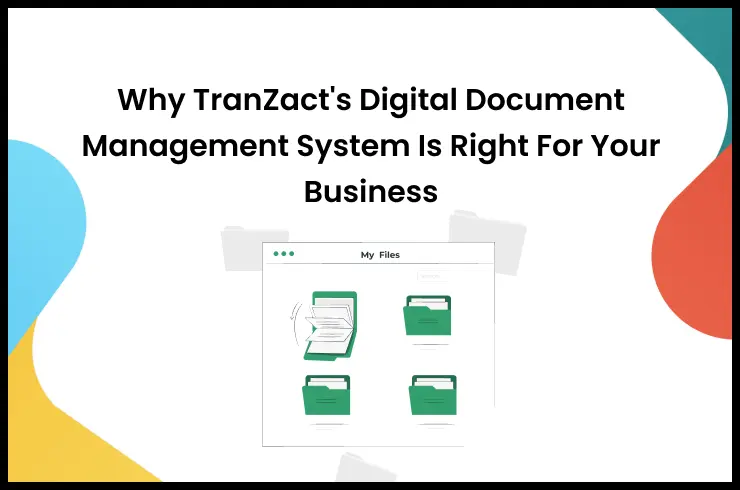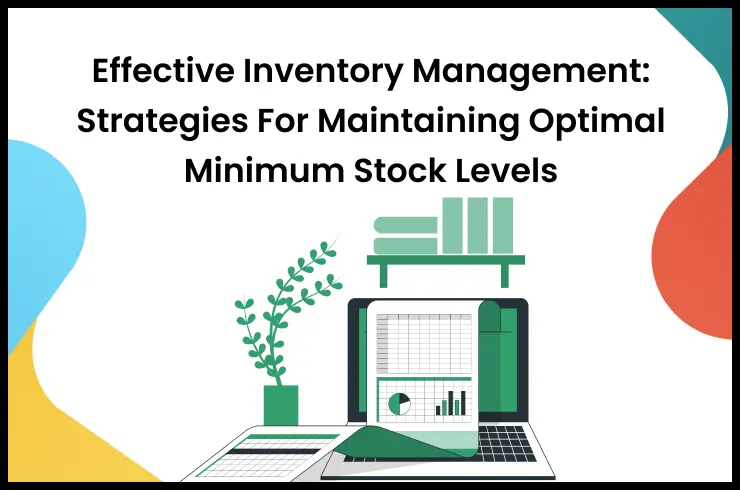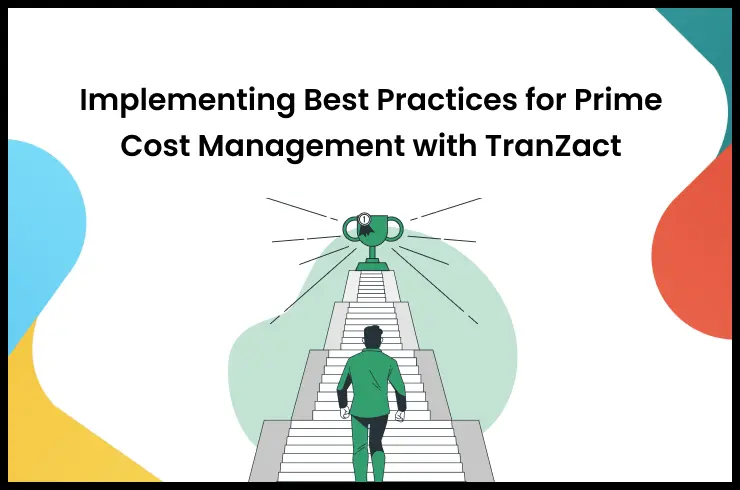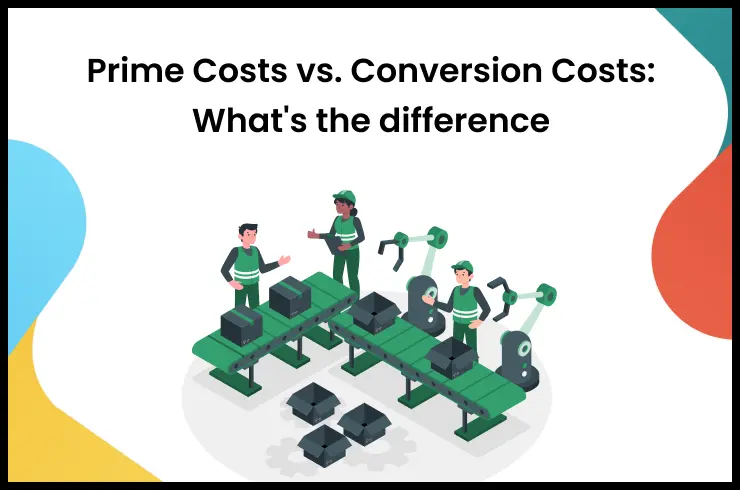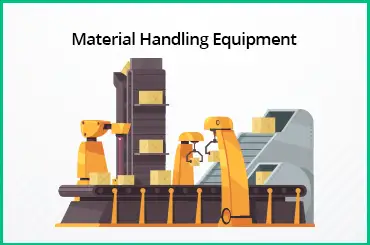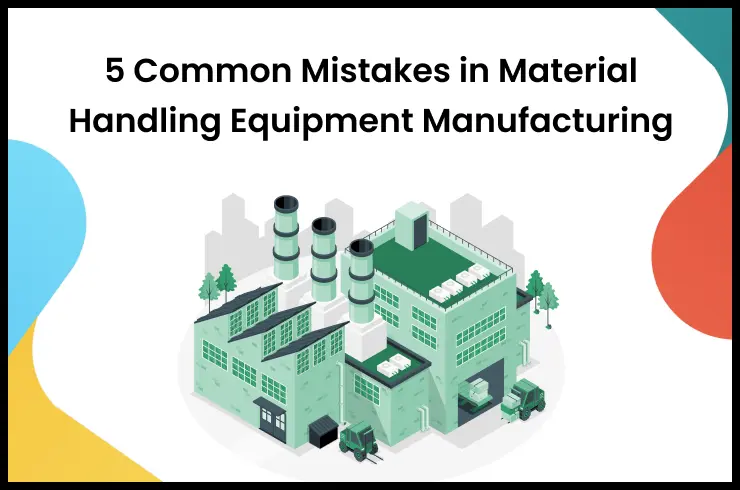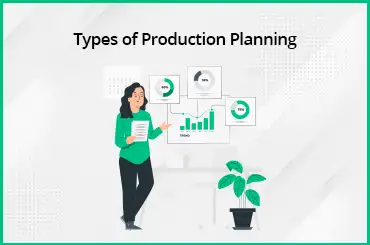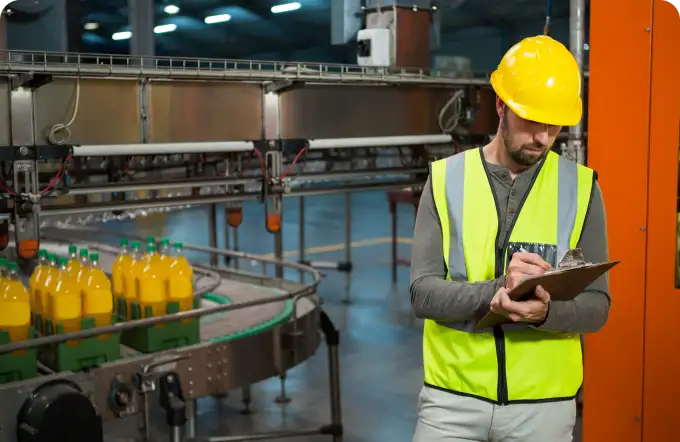Production planning process is an important part of any manufacturing business. A detailed production planning system helps to build realistic production schedules and makes sure that production processes are running smoothly, at all times. It streamlines the planning of material requirements, supply chain management, and inventory control.
In this blog post, we will take you through all the variables of the definition of production planning. It will also include the objectives, functions, benefits and importance of production planning and control.
What Is Production Planning System?
A production planning system (PPS) is a software or a tool that helps manufacturers with their operational control, production planning, and production monitoring. This system is designed to help the user keep an eye on all things related to production control and production planning software and provide data that can be used to optimize these systems further. This software helps departments like production, purchasing, and sales to make informed decisions by analyzing each of the processes involved.
What Are the Objectives of Production Planning System?
A production planning system is very useful for SME manufacturing businesses. Now, that you have understood the production planning meaning, you need to look at its objectives in production planning and how they can help you. Here are the most important objectives of production planning and control:
1. Resource Utilization:
A production planning system helps your business reduce wastage. It does so by controlling each step of the production planning process. This is a great way to increase the overall efficiency of your business.
2. Reduced Lead Times:
The implementation of a production planning system helps in the reduction of lead times. This means faster turnaround times. This equals more production and therefore more sales and revenue.
3. Meet Deadlines:
Another objective of having a production planning process is improving delivery timelines. This is extremely important as it directly affects customer satisfaction.
Functions of Production Planning System
A production planning system plans, controls and schedules your manufacturing process. There are many more functions of production planning, which help you throughout the product life cycle.
1. Production Planning Process:
The production planning process involves setting production goals, determining the resources needed, and outlining the sequence of operations to achieve these goals. It is important to maintain a balance between customer demand and production capacity. This is the most important function of a PPS.
2. Material Requirements Planning:
In this step of the production planning software, you have to decide the lot size, date of production, production capacity, and production sequence. You then create a detailed schedule for each of them. This decides your entire product line on which your business' sales depend.
3. Time & Capacity Planning:
The time and capacity planning stage is used to set the sequence of the individual steps of the production planning process to determine the earliest date of completion for each step.
3. Delivery Date Estimations:
Capacity planning allows you to schedule the available capacities over a duration of time based on which delivery dates can be estimated. Your delivery date estimation and reliability are all dependent on this step.
4. Timely Order Release:
During the order release part of the production planning and control system, you take all your orders that were previously scheduled and you precisely schedule each one of them. This means you pick a precise production date and make sure that the team sticks to that.
5. Order monitoring:
This is the final step of the production planning and control system where you're required to constantly monitor the production quantity. You check if it is going as per schedule without compromising quality. This data can also be used for other purposes such as payroll, accounting, costing, and quality control.
Benefits of Production Planning System
A good production planning software can bring many positive changes to the production of your manufacturing business. The most important benefits of production planning are:
1. Cost control:
Production planning software is constantly trying to further optimize all your processes by identifying inefficiencies and reducing unnecessary expenses. This is the biggest advantage of production planning and helps with cost optimization. For example, it can streamline inventory management, minimizing holding costs.
2. Increased efficiency:
Implementing a good production planning and control system will immediately improve the overall efficiency of your entire manufacturing process. It does this by working on improving each step in the production process. This improvement is seen in faster setup times and reduced idle periods.
3. Reduced wastage:
Effective production planning minimizes waste by optimizing resource use and production schedules. This reduction in wastage includes both material waste and time waste. For example, it helps in reducing overproduction and excess inventory.
4. Reduced Lead-time:
This system helps decrease the overall production lead time which means you can produce more at a quicker pace. It does this by optimizing every step of your manufacturing process. This improvement can lead to better customer satisfaction and competitive advantage.
5. Efficient functioning:
A manufacturing production planning software allows for a reduction in cost and error as well as faster production and delivery time. This improvement in functionality results in a more reliable and efficient manufacturing process. For example, better coordination between different departments can lead to fewer delays and mistakes.
What Is the Difference Between Production Planning System and ERP?
A production planning system is designed to help the user keep an eye on all things concerning production control and production planning in manufacturing and provide data that can be used to further optimize these systems. This software helps people across departments such as production, purchasing, and sales and helps them make better-informed decisions by analyzing each of the processes.
An enterprise resource planning (ERP) system is a type of software that organizations use in order to manage all their day-to-day activities such as accounting, procurement, project management, inventory, supply chain operations, and risk management and compliance. An ERP system tracks all aspects of your production, logistics, and finances. They also make sure that all your business processes are completely transparent.
An ERP system might not be useful for a manufacturer since it comes with a complete package and might not be useful for a business.
Production Planning in Manufacturing
Here is a step-by-step walkthrough of the production process of production planning in manufacturing. Here is what production planning in manufacturing exactly is:
- Starts by deciding the quantity of the product to be produced. This is based on market demand and the company’s capacity.
- Schedule the production process by determining the sequence of operations and the time required for each operation.
- Manage resources such as labour, equipment, and materials to make sure that they are used efficiently.
- Make sure that there is neither too much nor too little inventory. This helps in maintaining a balance that minimizes holding costs and prevents production delays.
- Implement quality control measures to make sure that each product meets the required standards. This involves regular inspections, testing, and adherence to quality protocols at each stage of production.
- After production, feedback is gathered, and the process is reviewed for areas of improvement. Continuous improvement practices help in refining production methods, enhancing efficiency, and adapting to changes in market demands.
How Much Does a Production Planning System Cost?
There are several production planning systems out there for you to choose from. Each with advantages and certain limitations that come along with it. If you're an Indian SME business looking to pick a system that's right for you, we suggest you try TranZact. It will cost you an estimate of ₹ 7,500/- a month plus GST (price is subject to change) and will help you improve and optimize the following parts of your process:
- Quotation tracking
- Sales and purchase
- Inventory
- Production
- Reporting
- Payments
- Buyers and suppliers
- Reminders and notifications
- Integration
- Onboarding and support
How to Choose the Best Production Planning System?
When you are looking out into the market for the best production planning systems, there are a few key factors you should consider.
1. User-friendly: It is important that the production planning system you implement is not difficult to work with. There's no use in having a system your team is not able to get on board with.
2. Cost-effective: Depending on the scale of your operations, you should choose a production planning system that suits the size of your business. Avoid paying for features and functionalities you do not need.
3. Easy integration: The production planning system you select should have the ability to integrate easily with other systems in your business. This will make sure that adoption is high within your team.
4. Customer support: Every system has some complexities and unique features that you may need help with activating. You must choose a production planning system that has dedicated customer support providing support when needed.
TranZact - Best Production Planning System
Being one of the best production planning software systems around, TranZact provides you with data-driven insights that will help you compare the quantities of raw materials that's been estimated to be used and how much actually ends up being used. Its multi-level BOM functionalities help production managers across every step of the production process from planning to execution.
It enables easy tracking of all production and work orders so that every stakeholder is well aware of the status of each order. Having all these functionalities at your disposal helps you to maximize production capacity and reduce operating costs.
Having a Robust Production Planning System Is Important
With a production planning system, you can get real-time visibility on every step of the manufacturing process - be it inventory tracking, monitoring the production floor, and fulfilling orders. By implementing a solid production planning system, your business will not only save on overall costs but will also see a great jump in efficiency which will in turn lead to greater customer satisfaction.
FAQs on Production Planning System
1. What is production planning and control?
Production planning system and control schedules and oversee the allocation of human resources, raw materials, machinery, and production processes. It does so in order to find the most efficient ways to produce finished products within the predetermined lead time.
2. What are the types of production planning and control systems?
There are five types of production planning and control systems. They are:
- Job-Based Planning
- Batch Method
- Flow Method
- Mass Production Method
- Process Manufacturing Method
3. Why is production planning important?
Production planning systems are important because they help your business with the following:
- Cost control
- Increased efficiency
- Reduction in lead time
- Efficient functioning of all processes
- Integrations
- Demand forecasting
- Identification of errors
4. What does production planning mean?
Production planning is the process of outlining how a company’s products will be manufactured. It involves setting production targets, allocating resources, and mapping out the operational steps.
5. What are the objectives of production planning and control?
The objectives in production planning and control include making sure of a continuous flow of production. Other goals are to maintain effective resource utilization, and maintain optimal inventory levels.
6. What are the 5 steps in the production process?
The five key stages in the production process are:
- Planning
- Routing
- Scheduling
- Dispatching
- Follow-up
7. What is the importance of production planning and control?
There is high importance of production planning for Indian SME manufacturers because it improves customer service, controls inventory, and improves equipment efficiency. It also plays a big role in production through schedule optimization, waste reduction, and cost minimization.
8. What are the 3 functions of production planning and control?
The three main functions of production planning and control are:
- Making sure of the availability of required materials
- Managing production facilities and equipment
- Analyzing and selecting the best production method
9. What are the three phases of production planning and control?
The three phases of production planning and control are planning phase, action phase, and control phase.
10. What is production planning in ERP?
Production planning in ERP refers to the integrated system that helps manage various aspects of manufacturing processes. An ERP system production planning helps in allocations of resources, procurement of raw materials, supply chain, and distribution.
11. What is manufacturing production planning?
Manufacturing production planning is a strategy that outlines the step-by-step process of creating your product from conception to completion. It tells manufacturers of the amount of product to produce and provides a deadline for production.
12. What is production planning in manufacturing?
Production planning in manufacturing is the process of deciding how a product or service will be manufactured before the manufacturing process begins. It is how you plan to manage your supply chain, raw materials, employees, and where the manufacturing process takes place.
13. What software is used for production planning?
A production planning software is used for production planning. Production planning software is a tool that helps manufacturers efficiently plan, schedule, and manage their production processes to optimize resources and meet customer demands.
14. What is the definition of production planning?
Production planning is the planning of production models in a business. It uses the resource allocation of activities of employees, production capacity, and materials to serve different customers.







